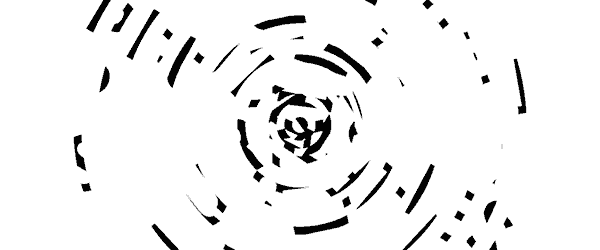Conference DEADLINE EXTENDED TO OCT 2, 2017
Journal DEADLINE EXTENDED TO OCT 20, 2017
GUESTS ANNOUNCEMENT:
We are excited to welcome Kim Nelson and her team from Windsor University to present a live documentary project that will close out our inaugural conference.
Kelly Gallagher, filmmaker, scholar and animation maven from Antioch College will also be in attendance to share her work and conduct a hands-on session with attendees. There will also be a special screening of Kelly's films at ATA in San Francisco's Mission District.
Our conference will also coincide with Queens University in Belfast, Ireland and we will be skyping in Cahal McLaughlin for a crossover session with the his new Doc Research Center.
CALL FOR SUBMISSIONS
The Documentary Film Institute announces a call for submissions to be included in their inaugural non-fiction film journal (first publication – Spring 2018) and conference to be held the Fall of 2017. Accepted submissions for the journal will be considered for the conference focused on opening a dialogue on non-fiction film scholarship and workshops towards the development of the Documentary Film Institute’s new journal, Pluralities.
This call is open to traditional papers, as well as PPT presentations, multi-media presentations, digital book chapters, new media and any other innovative ways of delivering scholarship on your research. Film projects, archives, exhibits, and installations are also invited.
All work related to nonfiction film history, theory and practice are welcome as well as projects from any discipline that has an intersection with the medium. In particular, the Institute values work that investigates global justice, cultural equity, democracy, the environment, the urban experience and underrepresented voices and stories. A focus on innovations in nonfiction film production and theory are also of interest including animated histories, performance art, experimental approaches, data visualization, mapping and the examination of theoretical concepts framing these approaches. All submissions will be considered.
Conference Deadline Extended: Oct 2, 2017
Journal Deadline Extended: October 20, 2017
Journal Notification date: January 31, 2018
Submit proposals to sfsudocfilm@gmail.com with subject heading: “Pluralities Submission”
Paper proposals should include bio, short abstract (300 words) and bibliography. Ultimately Papers/Presentations should be between 5-25 pages in length formatted in Chicago Style.
Projects submissions should include bio, project description and links to the work or work samples that demonstrate the work you wish to have considered.
NONFICTION FILM CONFERENCE DETAILS
Fall 2017 – November 8th & 9th
Location: San Francisco State University
Pluralities: A Project of San Francisco State University’s Documentary Film Institute
It is urgent, in these times, to secure spaces where democratic conversations can occur. Documentary film is one of the most powerful tools we have to research and reflect on our collective human experience and create connections to better ourselves. There is currently no single hub for global conversations around documentary film and how it illuminates and intervenes in the social issues defining our age.
San Francisco State University’s Documentary Film Institute plans to meet this need by creating Pluralities, a multi-media, digital journal. Pluralities will use nonfiction film to engage the humanities in nuanced dialogue. It will bring together a cosmopolitan group of thought leaders, creative thinkers and learning communities to participate in the same global exchange as documentary filmmakers. Pluralities will also offer far-reaching avenues for national and international nonfiction filmmakers and scholars to exhibit, examine and exchange their work in one platform. In addition, it will provide an umbrella for the various creative and scholarly pursuits that are housed at the Documentary Film Institute.
The journal will function as an online and interactive space that identifies, experiments and innovates new forms of multi-media scholarship in the field using a no-fee open source platform. In addition, it will bring together thought leaders and creative professionals in bi-annual symposia and conference settings to further interrogate these new approaches to scholarship and intersectionality in the burgeoning areas of nonfiction film and the humanities. Pluralities’ vision is to be part academic journal, part aggregator of underserved global voices and part provocateur to the field of nonfiction film and the visualization of the humanities. The journal will feature the work of graduate students as well as columns that debate issues of representation and history in film in language accessible to a non-specialist public. The aim is to collect multiple versions of reality in one space in order to question the possibility of any master narrative, filling in the holes of history and the present with experiential knowledge and self-critique.
The Bay Area is the birthplace of nonfiction film and, as a center of cultural, political and technological innovation, the region remains a hotbed for documentary filmmaking. As a university dedicated to global justice, equity and accessibility, and rooted in cross-cultural studies, SF State is the most compelling place to ground an innovative multi-media, digital journal for nonfiction film. The university’s values and the extraordinary diversity of our students, faculty and staff empower us to give agency to underrepresented communities all over the globe.
ABOUT THE INSTITUTE
The Documentary Film Institute functions as a production hub and incubator in which individual filmmakers, researchers, community members and entrepreneurs pursue a variety of projects, whether they are emerging talents or established veterans. It supports applied research initiatives and critical discourse, from large-scale grants relating to documentation to conferences on the documentary tradition. Since its inception in 2005, the Institute has screened more than 120 films and hosted more than 40 visiting filmmakers for more than 12,000 attendees.
Journal Editor: Soumyaa K. Behrens
